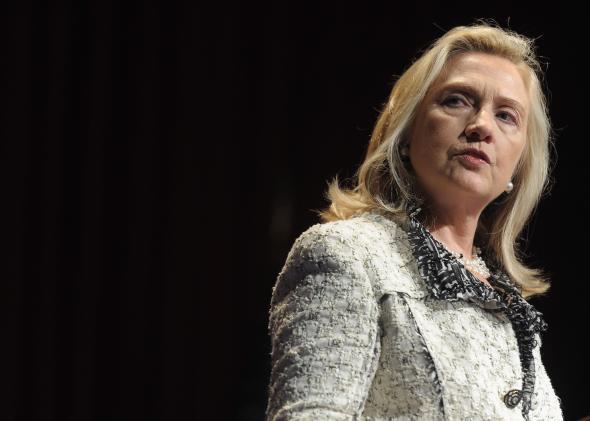Conservatives think they’ve found a great GOTCHA! this week: In 1975, Hillary Clinton was a public defender, tasked with representing a man accused of raping a 12-year-old girl. She successfully persuaded her client to plead down to a lesser charge. Now the right-wing press is slobbering all over an interview she did in the early 1980s for Esquire (an interview that never ran, but that the Washington Free Beacon dug up this week) where she discussed this case and her belief that her client was lying to her when he said he was innocent. From the Free Beacon:
The full story of the Taylor defense calls into question Clinton’s narrative of her early years as a devoted women and children’s advocate in Arkansas—a narrative the 2016 presidential frontrunner continues to promote on her current book tour.
Does it really, though? Defense attorneys have an unpleasant but necessary job, and Clinton did what she was obligated to do, which was to give her client a constitutionally mandated adequate defense. That should be the end of this. But Melinda Henneberger of the Washington Post has decided to keep digging, making hay over irrelevant details, such as whether Clinton was somber enough when recollecting this incident.
Henneberger is also bothered that Clinton considered the standard rape defense maneuver of trying to discredit the victim. In an affidavit requesting a psychological evaluation of the victim, Clinton wrote, “I have been informed that the complainant is emotionally unstable with a tendency to seek out older men and to engage in fantasizing.” She also said she had been told that the victim had levied false accusations before.
I understand why this gives Henneberger pause, but to quote myself from 2012:
Defense attorneys use this strategy because it works, as can be routinely demonstrated. As long as juries keep acquitting based on this myth that women routinely make up rape accusations for the hell of it, defense attorneys will continue to use it. The problem here is a larger culture that promotes rape myths, not defense attorneys who exploit these myths in last-ditch attempts to get acquittals for rapists who have overwhelming evidence against them.
Henneberger agrees that “[e]ven rapists deserve adequate legal representation, of course” and that “[d]efending even a child rapist as vigorously as possible might be a plus if she were running to lead the American Bar Association.” But when it comes to doing the job she was assigned to do, Henneberger frets, “But wouldn’t her apparent willingness to attack a sixth-grader compromise a presidential run?”
Perhaps, but only insofar as the right is willing to bamboozle people who don’t fully understand that someone accused of a crime has a constitutional right to an adequate defense. (Sadly, this strategy has worked in the past.) Hopefully the rest of the media will not take the bait and instead focus on actual policy issues affecting women and girls, such as the Violence Against Women Act, instead of trying to adjudicate whether a defense attorney should have sabotaged her client four decades ago in hopes of a future presidential run.
